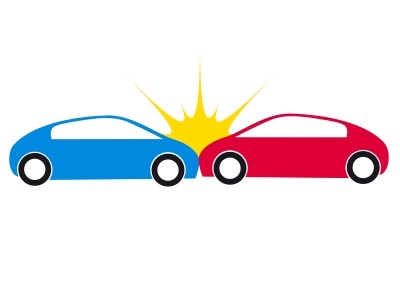
Everyone knows that a work or car accident can have serious consequences: fractures, amputation, disfigurement, spinal cord injury, head injury, chronic pain and even death. But after serious accidents people often have to live with more than just physical suffering. Experiencing such a traumatic event can also result in ongoing psychological pain.
The most common psychological problems associated with accidents are persistent pain which interferes with the individual’s ability to return to work and resume normal daily activities. But people can also experience other problems such as driving anxiety or driving phobia, post traumatic stress disorder, depression, sleep disturbance, irritability and anger, forgetfulness and poor concentration, and nightmares. Even seemingly minor accidents can be distressing. Without proper help, pain and emotional distress may persist for long periods of time.
A stressful reaction can occur at any time following a traumatic event including weeks to months although it usually happens within a short period of time following the event. Symptoms may last days to weeks but if severe and left untreated it may persist for months or years. It is important to remember that almost everyone will feel stressed after being in an accident or witnessing something traumatic. This is normal and it is not a sign of weakness.
Post Traumatic Stress Disorder or PTSD is a psychological condition that may develop after people have experienced or witnessed a life threatening event. Symptoms of PTSD fall into three categories: re-experiencing the event in some way, arousal, and avoidance. Symptoms include persistent nightmares, "flashbacks" (the feeling that one is experiencing the traumatic event all over again), avoidance of objects or situations that remind the person of the traumatic event, sleep difficulties, anger and irritability, anxiety, withdrawal, exaggerated startle, hyper vigilance, and problems with relationships, work or other areas of the person's life. It is easy to imagine how these symptoms might interfere with a person's ability to do his job, take care of himself or herself, and enjoy his or her life.
If an accident is severe enough to result in one or more deaths, the person who lives through it may experience an emotional problem known as "survivor guilt." Some psychologists view survivor guilt as another component as PTSD, while other people feel that it qualifies as its own disorder. In either case, it is a very difficult problem to live with. People suffering from this problem feel that they did not "deserve" to survive an accident when others did not. They may even blame themselves for another person's death. These feelings can lead to deep depression and sometimes even suicide attempts.
ARE THERE RISK FACTORS FOR PTSD?
A number of pre-accident variables have been associated with the onset of PTSD including previous exposure to traumatic events, the presence of pre-accident mental health problems such as depression, and poor social support. The amount of physical injury, life threat, and loss have also been predictive of the development of PTSD. Post accident variables predictive of PTSD include how quickly the individual recovers physically from the accident, the level of social support from friends and family, and the level of active re-engagement in both work and social activities. To the extent that physical limitations will allow, survivors of accidents should be encouraged to maintain as much of their pre-accident lifestyle as possible, with as much support from family and friends as possible. Such coping strategies appear to be linked with positive mental health outcomes.
WHAT TREATMENTS ARE AVAILABLE FOR PTSD?
One aspect of both car and work related PTSD that is different from PTSD caused by other traumas is the increased likelihood of being injured or developing a chronic pain condition following the trauma. As a result, many people who have been in an accident first visit their primary care physicians for treatment and don’t consider psychological treatment. Studies have shown that of the people who develop PTSD and do not seek psychological treatment, approximately half continue to have symptoms for more than six months after the accident. Therefore, it is important to identify the symptoms early on and seek appropriate psychological treatment.
A number of different treatment approaches have proven effective for driving anxiety and PTSD. Treatments include behaviour therapy, cognitive processing therapy, EMDR, hypnosis, and medications. In addition, it may be useful to work with a chronic pain specialist to help manage the physical pain caused by the injury. Sometimes these treatments are provided in conjunction with one another.
If you have been involved in a car accident and are afraid to drive or be a passenger, it is important to get help for this problem before the anxiety becomes firmly established.
The Workplace Safety & Insurance Board of Ontario (WSIB) has a pamphlet available on its website titled “Coping with a traumatic event” which you may find helpful.
Although psychological services are not covered by OHIP, there are several other forms of coverage that may be available.
AUTOMOBILE ACCIDENTS
Individuals or family members involved in, witnessing, or suffering from the aftermath of a motor vehicle accident are covered for psychological care under the No Fault legislation. Patients may be self-referred.
WORKPLACE SAFETY & INSURANCE BOARD
Psychological services may be covered for workers whose injury involves unresolved pain and disability or Post Traumatic Stress. The Workplace Safety & Insurance Board does not extend coverage to workers suffering from job related stress or depression but may for harassment. The Board will cover the cost of the initial assessment and authorize treatment if deemed necessary to the individual's recovery.
REFERENCES
1. Buckley, Todd. "Traumatic stress and motor vehicle accidents. A national center for PTSD fact sheet."
2. Devine, Joseph. "Psychological effects of a vehicular accident.”
Image courtesy of Salvatore Vuvono at FreeDigitalPhotos.net